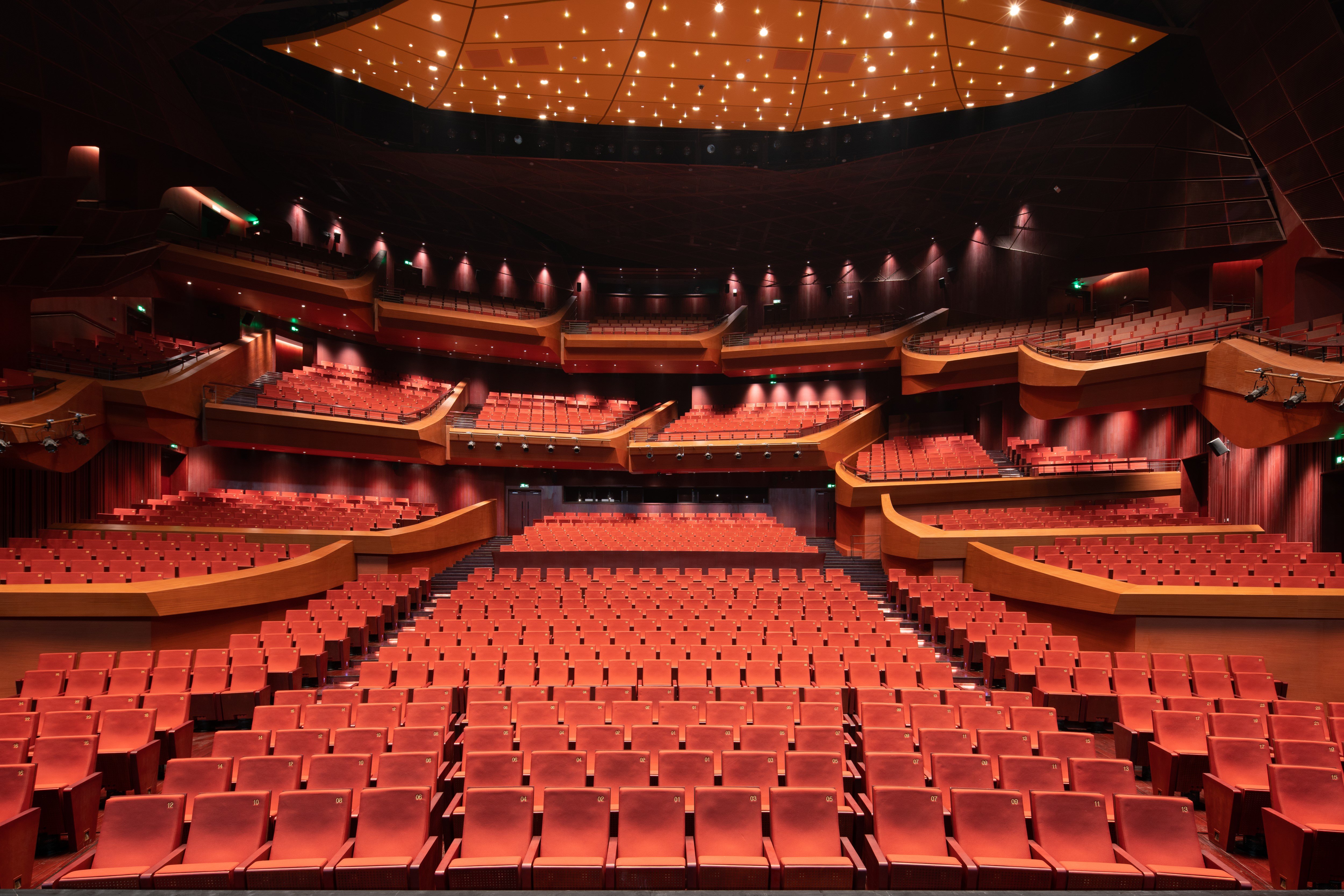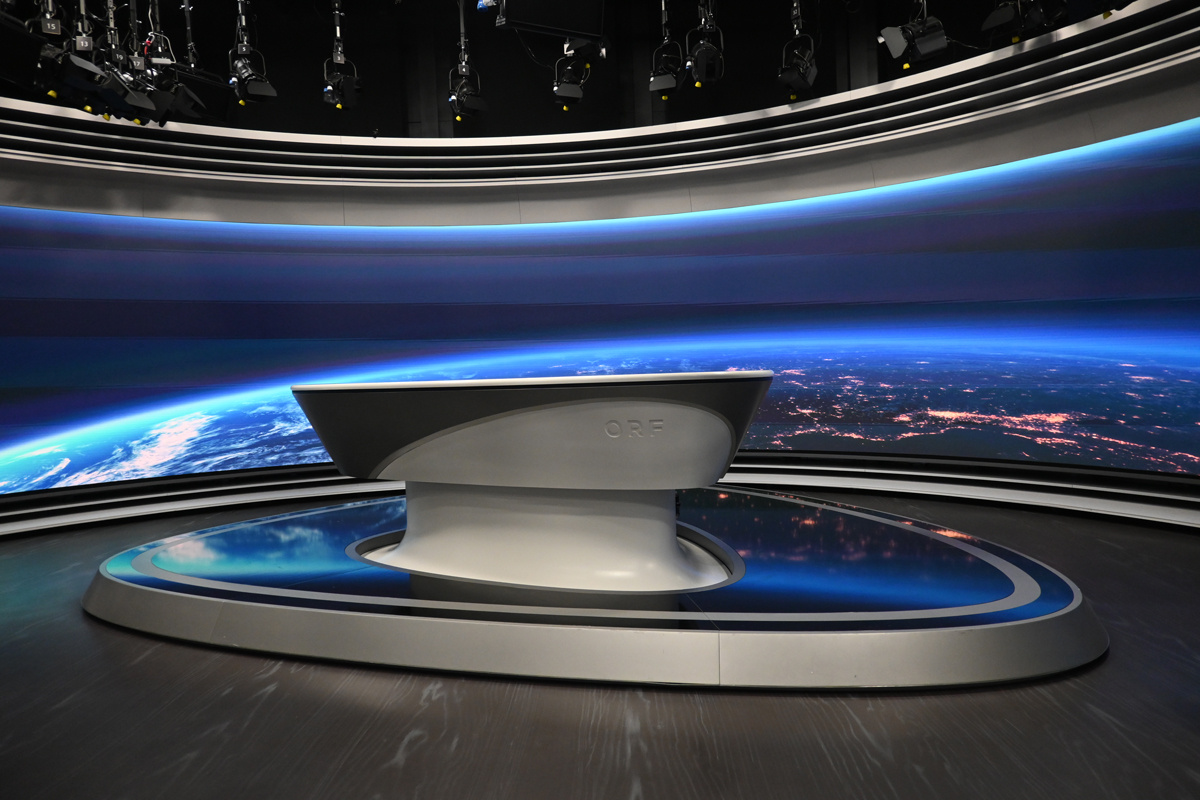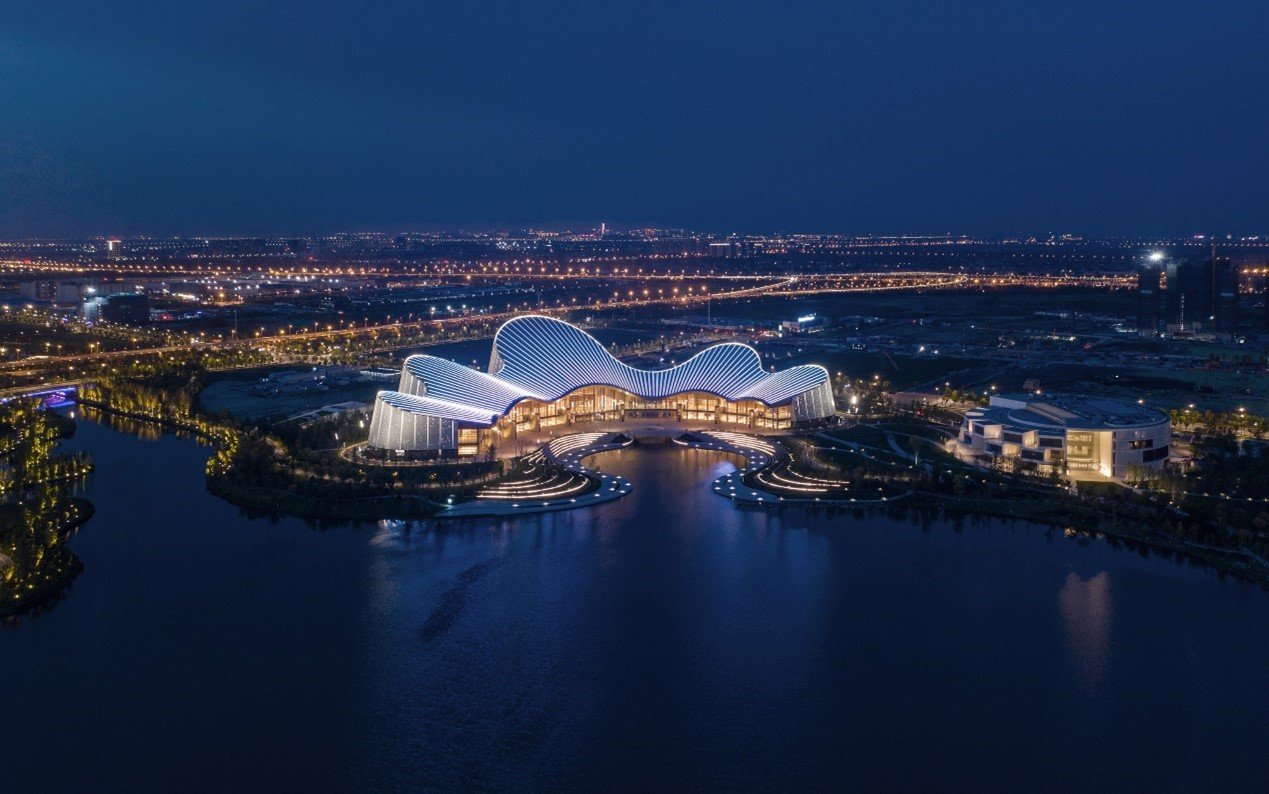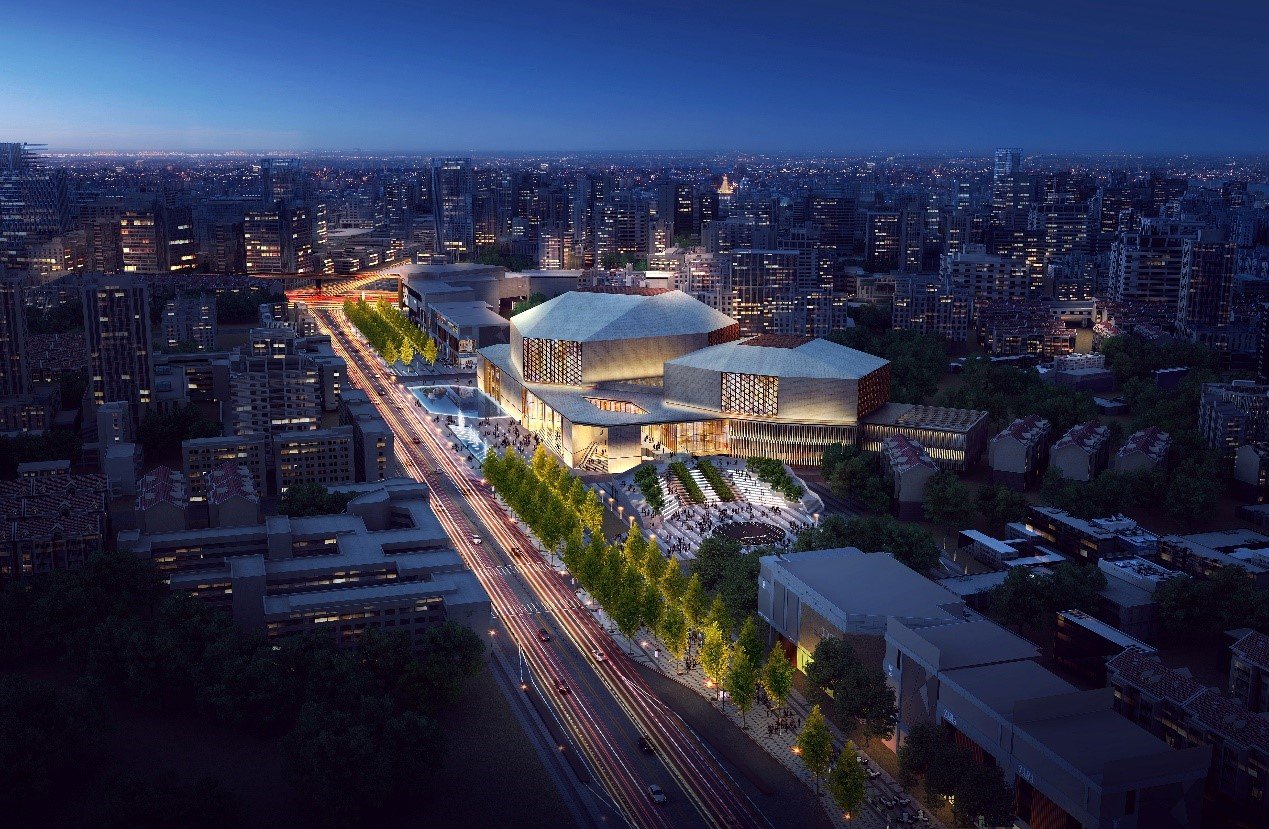Suzhou Bay Cultural Center is located at the shore of Lake Tai in Suzhou of China, and adjacent to the Taihu New Town CBD. It is one of the signature development projects initiated by the city through the Wujiang Lakefront Masterplan. The 215,000 square-meter center consists of two wings, the Suzhou Opera House on the north side, and Wujiang Exhibition Center on the south.
The two magnificent buildings are connected by a long rooftop ribbon-like arch. This huge ribbon waves and intertwines from the north wing to the south, forming a giant figure eight. With patterns of rotating geometry, this architectural feature is visible from afar. The ribbon represents the silk and water sleeves of the Kunqu Opera, and evokes the cultural richness of the city. It also serves as a bridge for pedestrians to enjoy the spectacular view of Lake Tai and the heart of Suzhou CBD. Suzhou Bay Cultural Center has symbolized successful economic and cultural development, marking a milestone for the city.
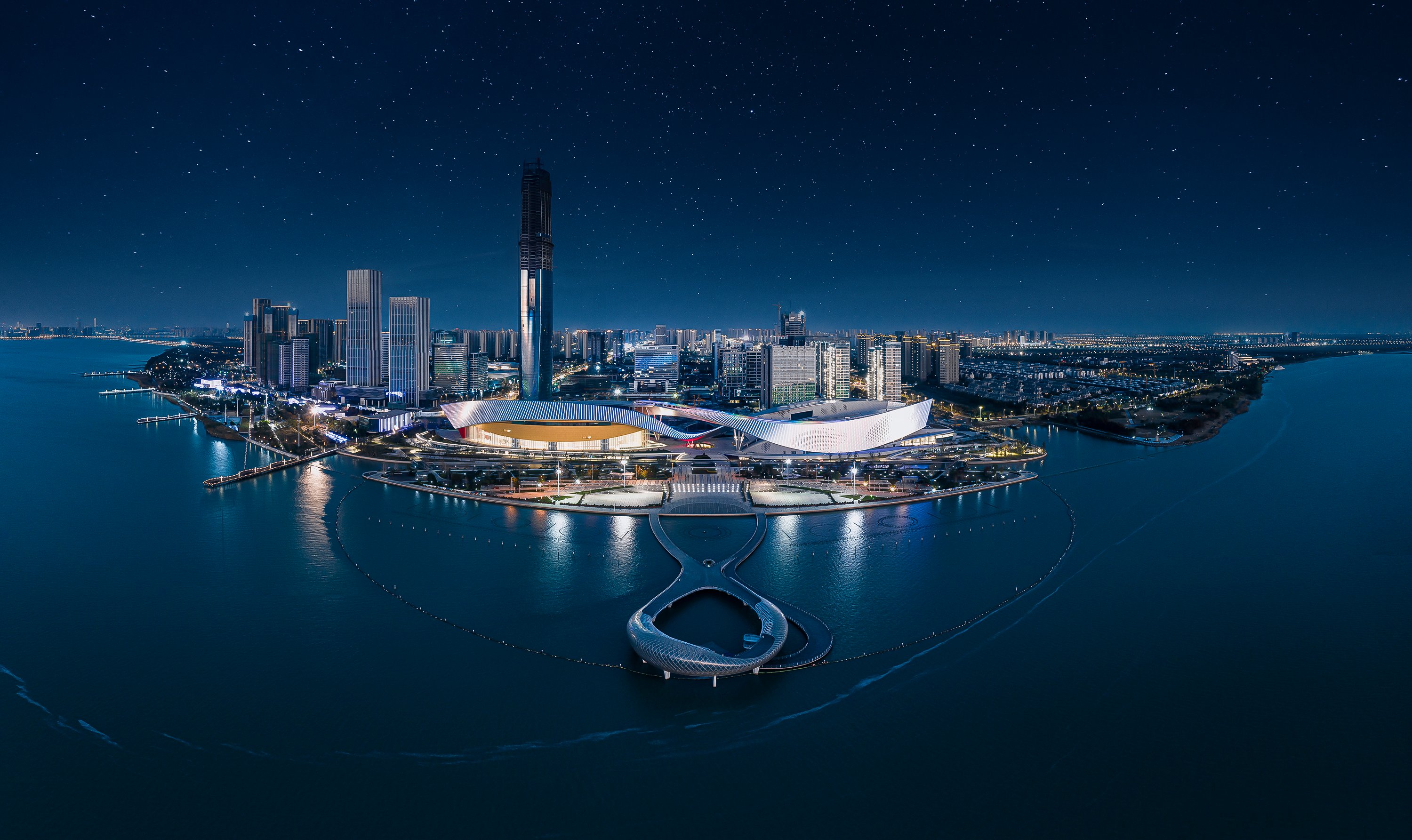
The north wing features an Opera House, a black-box theatre hall, rehearsal rooms, art space, cinemas, and restaurants. The Opera House is an international opera theatre which has a 1600-seat capacity. Different from the neatly arranged auditoriums of a traditional theatre, this Opera House adopts an asymmetrical design. The seating area on the upper deck is designed like several small petals stacked on top of each other. The petal-like auditorium is a unique and poetic design that brings the audiences a natural immersive and enjoyable experience. The theatre hall serves as a multi-function black-box theatre which has a capacity of 600 seats. The stage setting and auditorium will be specially arranged based on the requirement of each performance.
ETC gear including consoles, luminaires, dimmers, and networking systems are installed in the Opera House and theatre hall. Two Gio consoles with 24K outputs are installed in the Opera House, and two Gio @5 consoles with 4K outputs are used to control the lighting of the theatre hall. The venue owner was impressed by the powerful magic sheet functionality which makes managing the fixture layout, and control and programming of buttons, faders, colors, and gobos, easier. The magic sheets also provide flexibility for the user to adjust the control to fit the needs of a variety of performances.
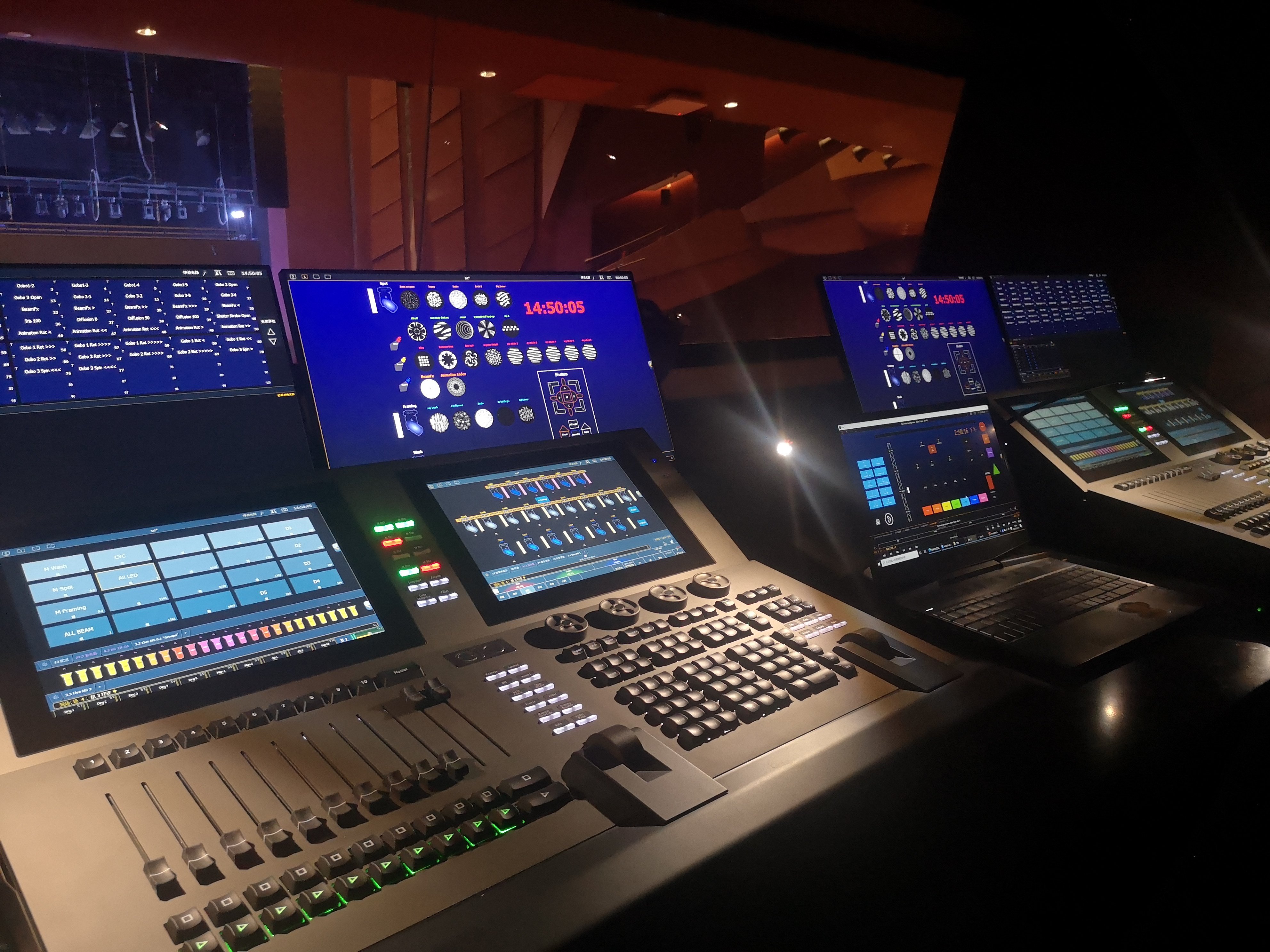
To enjoy world-class power and dimming control, ETC’s Sensor3 ThruPower Dimmer and Relay modules are installed in the venues. These modules popular in the theatrical industry as they are famous for their reliability and stability for smoothly controlling the intensity of all types of fixtures. Using the Sensor3 ThruPower module enables users to switch freely between constant circuits, on/off switching with true air-gap relays, and dimming of the lighting loads.
Luminaries from ETC have been recognized as the standard lighting fixtures in the industry and are widely used in theatres. This is the reason that Suzhou Bay Cultural Center selected Source Four LED Series 2 and ColorSource Spot fixture with CYC adapters as the stage lighting of the Opera House and theatre hall. The lighting designer found Source Four LED Series 2 favorable as it brings high brightness from a variety of positions while having a low power consumption, thanks to the LED light engine. The lighting designer was also amazed by the rich and smooth wash of color brought by ColorSource which can enhance the moods of every scene.
To have a reliable data distribution for all lighting technology in the venue, Response Mk2 DMX Gateways from ETC are installed to securely connect the sACN network to the DMX runs. They are also interoperable as it meets the industry-standard protocols such as ANSI E1.31 (sACN) and ANSI E1.20 (RDM) using standard Ethernet cabling and infrastructure. Response Mk2 DMX Gateways once again impressed the venue owner as they offer a powerful, fast, and stable data distribution by the use of ETC’s network technology.
ETC was honored to be selected to offer a comprehensive range of lighting technology to Suzhou Bay Cultural Center and be part of the city’s cultural and artistic development journey.
Photo credit: Suzhou Bay Cultural Center and Hangzhou YiDaShi Technology Development Co., Ltd.


